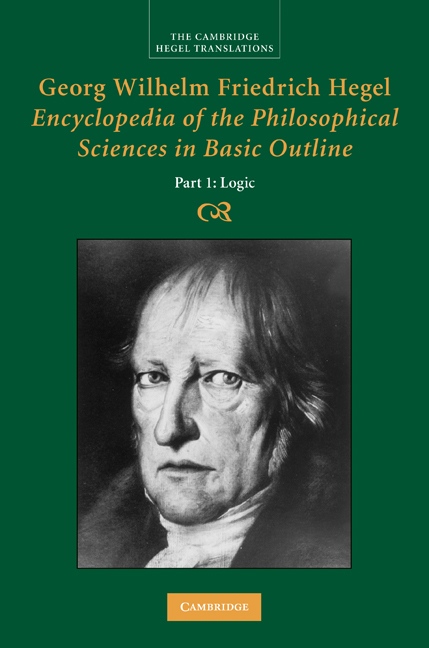Hegel, G.W.F. Encyclopedia of the Philosophical Sciences, Part I: Logic. (Cambridge, 2010).
Excerpt:
For, what this theory asserts is that truth lies neither in the Idea as a merely subjective thought, nor in mere being on its own account – that mere being per se, a being that is not of the Idea, is the sensible finite being of the world. Now all this only affirms, without demonstration, that the Idea has truth only by means of being, and being has truth only by means of the Idea. The maxim of immediate knowledge rejects an indefinite empty immediacy (and such is abstract being, or pure unity taken by itself), and affirms in its stead the unity of the Idea with being. And it acts rightly in so doing. But it is stupid not to see that the unity of distinct terms or modes is not merely a purely immediate unity, i.e. unity empty and indeterminate, but that – with equal emphasis – the one term is shown to have truth only as mediated through the other – or, if the phrase be preferred, that either term is only mediated with truth through the other. That the quality of mediation is involved in the very immediacy of intuition is thus exhibited as a fact, against which understanding, conformably to the fundamental maxim of immediate knowledge that the evidence of consciousness is infallible, can have nothing to object. It is only ordinary abstract understanding which takes the terms of mediation and immediacy, each by itself absolutely, to represent an inflexible line of distinction, and thus draws upon its own head the hopeless task of reconciling them. The difficulty, as we have shown, has no existence in the fact, and it vanishes in the speculative notion.
Online:
Part I free at the Center for Digital Discourse and Culture (Wallace translation) [pdf]
Available on Amazon (Brinkmann/Dahlstrom translation)
